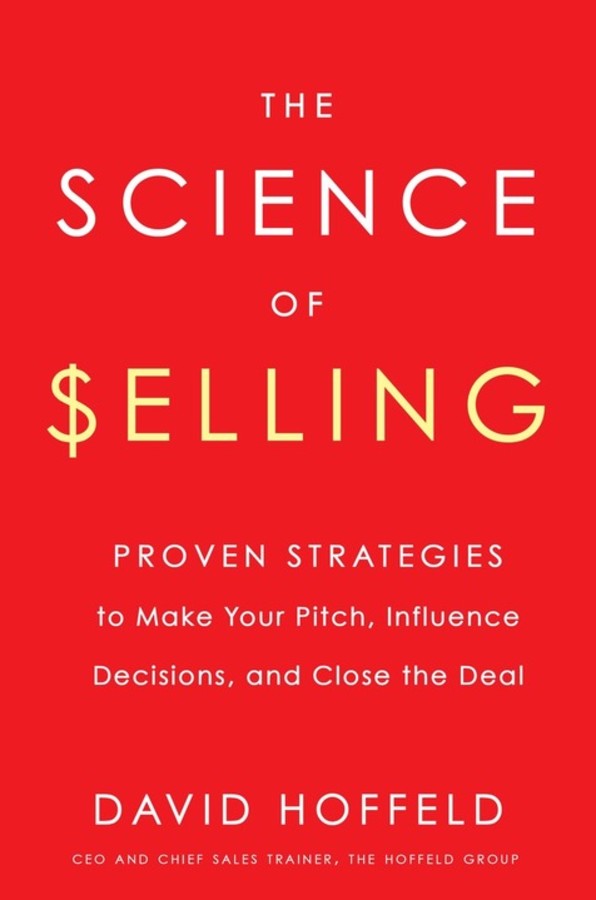Want To Know What Your Brain Does When It Hears A Question?
What color is your house?
After reading that question, what were you thinking about? The obvious answer is the color of your house. Though this exercise may seem ordinary, it has profound implications. The question momentarily hijacked your thought process and focused it entirely on your house or apartment. You didn’t consciously tell your brain to think about that; it just did so automatically.
Questions are powerful. Not only does hearing a question affect what our brains do in that instant, it can also shape our future behavior. And that can be a powerful principle in the workplace.
Questions On The Mind
Questions trigger a mental reflex known as “instinctive elaboration.” When a question is posed, it takes over the brain’s thought process. And when your brain is thinking about the answer to a question, it can’t contemplate anything else.
Research in neuroscience has found that the human brain can only think about one idea at a time. So when you ask somebody a question, you force their minds to consider only your question. As neuroscientist John Medina puts it in his book Brain Rules, “Research shows that we can’t multitask. We are biologically incapable of processing attention-rich inputs simultaneously.” Likewise, Nobel Prize–winning economist Herbert Simon has written that human beings consciously “operate largely in serial fashion. The more demanding the task, the more we are single-minded.”
Behavioral scientists have also found that just asking people about their future decisions significantly influences those decisions, a phenomenon known as the “mere measurement effect.” Back in 1993, social scientists Vicki Morwitz, Eric Johnson, and David Schmittlein conducted a study with more than 40,000 participants that revealed that simply asking someone if people were going to purchase a new car within six months increased their purchase rates by 35%.
According to an earlier study published in the Journal of Applied Psychology, asking citizens whether they’re going to vote in an upcoming election increases the likelihood that they will by 25%. And in yet another study, this one from 2008, researchers found that asking about one’s intention to give blood raised donation rates by a modest but noteworthy 8.6%. The same effect has been found in studies involving computer sales, exercise frequency, and disease prevention—in each case, all these behaviors can be increased just by asking about them.
Inquiring Your Way To Influence
So why do questions have such influence on the decision-making process? First and foremost, they prompt the brain to contemplate a behavior, which increases the probability that it will be acted upon.
In fact, decades of research has found that the more the brain contemplates a behavior, the more likely it is that we will engage in it. That’s not all. Just thinking about doing something can shift your perception and even alter your body chemistry. For instance, imagine sipping some lemon juice. What does it taste like? As you briefly think about lemon juice, notice the sensations occurring in your mouth. You’ll find that something totally beyond your control occurred—you began to salivate more and you could almost taste the tartness of the juice.

Want to use this principle in the workplace to advance your career? Try it the next time you have to give a presentation. think back to the last one you had to sit through. Too often, presenters fall into the trap of talking at people, instead of engaging them. One easy way to fix that habit is to add more questions into your talk.
If you’re discussing a feature of the product your company offers, you could ask, “If you had this [feature], how would you use it?” You don’t actually need to sit back and wait for answers, though. The question guides your listener in mentally digesting how she might use the thing you’re talking about–which actually increases the likelihood that she will.
You can also use questions to gain an edge on a job interview. But don’t stick to the typical inquiries. Research out of Harvard University suggests that you should ask the types of questions that get an interviewer to offer an opinion, not just supply information. When scientists used functional magnetic resonance imaging (MRI), they found that questions that asked participants to disclose their opinions increased neural activity in the areas of the brain associated with reward and pleasure.
As a result, a question like, “Based on what’s happening in our industry, how do you see the company going after opportunities?” won’t just demonstrate your expertise, it can subtly make an interviewer more receptive to you, just by virtue of eliciting their personal views.
Questions are so ingrained in human communication that it’s easy to underestimate their impact on our brains. Yet science has proven that they’re an effective tool for strengthening connections between people and gaining influence. Which is pretty useful.
Don’t you think?
This article is adapted from The Science of Selling: Proven Strategies to Make Your Pitch, Influence Decisions, and Close the Deal by David Hoffeld, published by TarcherPerigee, an imprint of Penguin Publishing Group, a division of Penguin Random House LLC. Copyright © 2016 by David Hoffeld. It is reprinted with permission.
Fast Company , Read Full Story
(12)














